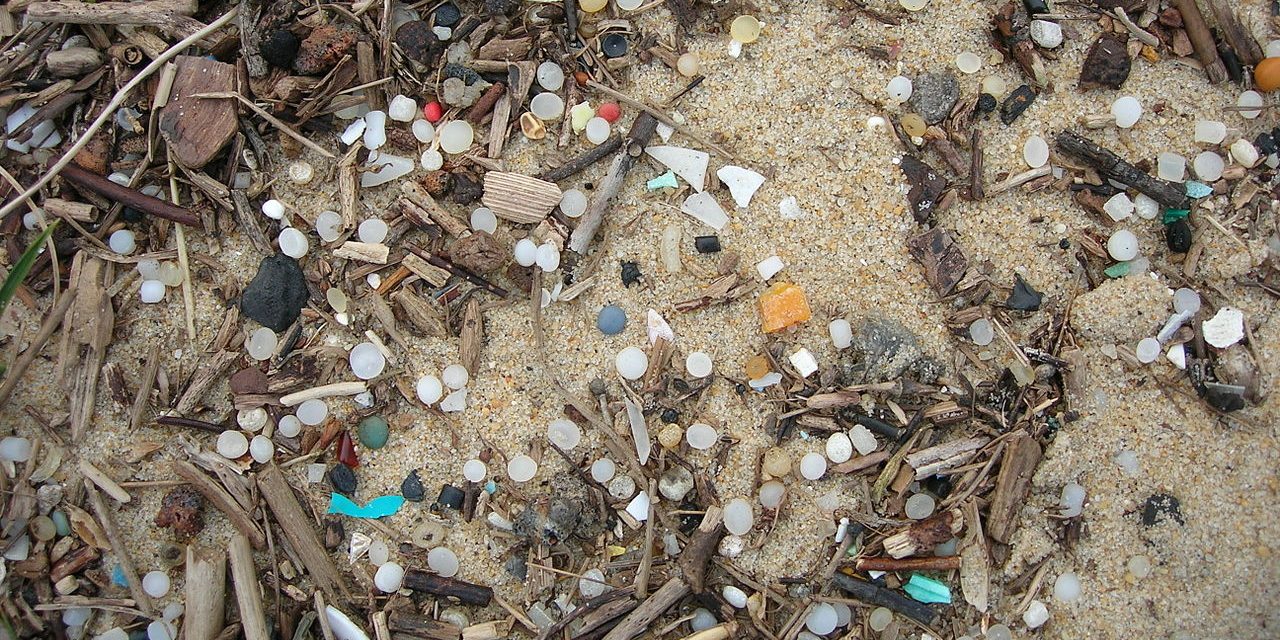Climate News: Plastic cleanup operation tests the UK’s preparedness for environmental disasters
A cleanup operation of plastic has been completed along the North Norfolk coastline after a North Sea Collision occurred on March 10.
Plastic nurdles, which are tiny plastic pellets used in manufacturing, were released when the container ship MV Solong collided with the anchored MV Stena Immaculate off the coast of East Yorkshire, causing a fire. In the hours following the collision, it is believed that attempts to put out the fire with high pressure hoses swept the plastic pellets into the sea.
Hayley Roan, of RSPB Norfolk, stated: “this is an internationally important area for birds and wildlife. The risk is birds might ingest some of this stuff, and the harm would be immense“.
Some 40,000 plastic pellets were reportedly removed from the Brancaster Beach alone
It is possible that during the collision, as jet fuel leaked from the MV Stena Immaculate, the pellets may have become coated in toxins, posing a significant threat to wildlife. Indeed, many of the nurdles have been found charred and moulded together.
The cleanup operation was a race against time before the tides changed, and the various authorities involved, including the Coast Guard, had a window of only six or seven days to complete the clean up, according to the RSPB. Some 40,000 plastic pellets were reportedly removed from the Brancaster Beach alone.
Victoria Egan, General Manager for the National Trust on the Norfolk Coast, said: “as a conservation charity, we’re incredibly grateful for the response and support we’ve received from multiple agencies and authorities in cleaning up the plastic pellets that have washed ashore at Brancaster Beach.” She continued, “with tides turning this week, Oracle’s use of a mechanical vacuum to collect and remove some of the loose nurdles from the strandline comes just in time.”
Nicola Platts, Facilities Manager for North West Norfolk Reserves, told The Boar that with “only a very small team”, the organisation has been forced to “work at capacity to try and deal with the plastic nurdle situation alongside our usual reserve management.”
There remain concerns of the long-term effects of the collision on fish, crab, and lobster stocks
The Norfolk Wildlife Trust (NWT) echoed these sentiments, adding that it was “a huge problem…and our volunteers spent hours dealing with this laborious task“.
The Coastguard carried out daily surveillance flights with Beechcraft King Air pollution control aircraft, which spotted the pellets in the waters of The Wash on March 16. It is believed that most of these have now washed up or been collected after “Coastguard Rescue Teams and other specialist counter pollution assets were sent to assist with this response“.
The initial success of the clean up operation, under such challenging conditions, must be a source of reassurance as instances of environmental disasters are likely to become far more frequent as a result of ongoing climate breakdown.
Despite this, the Wells Harbour Office told The Boar: “although we haven’t particularly experienced (the effects of) any in Wells, the Burnham-Overy-Staithe Harbour, and local beaches, have been impacted.”
The two harbours have both retained small but vibrant fishing communities, but there remain concerns of the long-term effects of the collision on fish, crab, and lobster stocks.

Comments